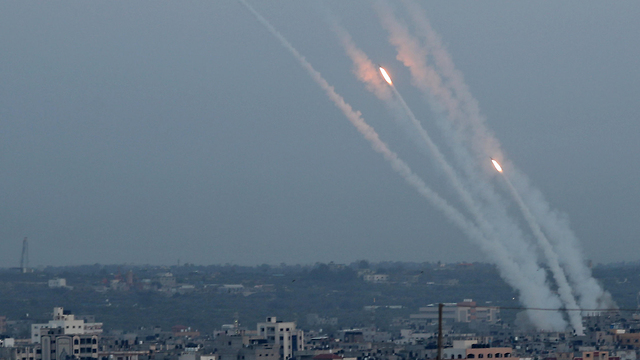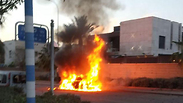
Years of Gaza rocket strikes leave dark mark on the south's psyche
NGO dealing with post-trauma reports huge spike in calls to its helpline, especially in southern Israel; almost half of callers are discharged combat troops aged 21-34
A week after the last round of escalation between Israel and Gaza during which 700 rockets and rockets were fired at southern communities, a special report shows just how terrible the toll that the repeated rocket and missiles strikes are having on the Israeli psyche, in particular in the south.
In the three days of escalated violence alone, more than 1,000 people contacted the NATAL NGO, which deals with trauma related to wartime and terrorism, about stress and anxiety.
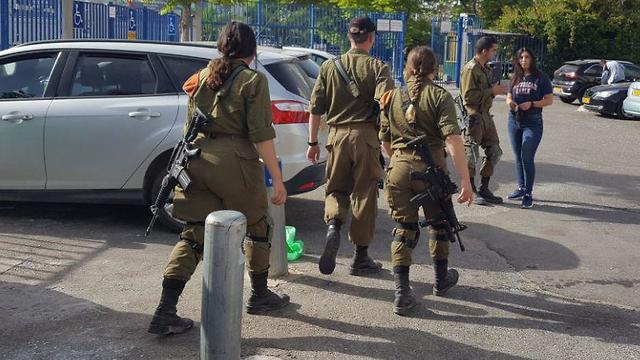
According to NATAL, in 2018 the organization's helpline received calls from more than 4,000 people across Israel who were coping with symptoms of post-trauma - a 25-percent increase from the previous year. One-quarter of the applicants were children or young people living in the south of Israel.
In fact, in the last five years since the end of Operation Protective Edge, there has been a steady increase in the number of residents of the confrontation line seeking assistance and support for themselves or their children.
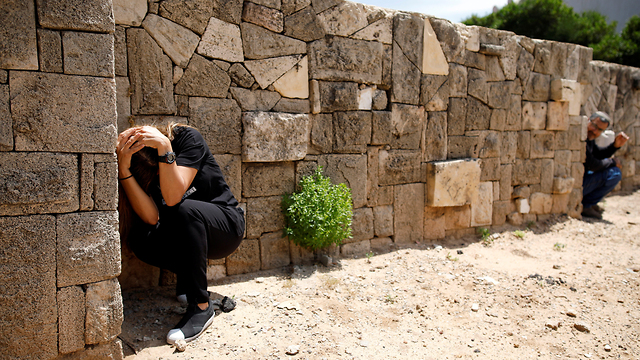
Following the wave of tensions with the Gaza Strip and the fighting in 2018, there was a 40 percent increase in helpline requests from residents of the southern region compared to the previous year – 1,300 in 2018 as opposed to 780 in 2017. That number is expected to grow following the latest round.
The rounds of fighting in the south, the fear generated by airborne explosive devices and the regular clashes at the Gaza-Israel border fence have all led to a dramatic increase in the number of calls to the hotline by civilians.
The data shows a clear spike in calls to hotline around certain key dates in 2018.
For example, there were an average of 200 new callers per day in the run-up to the Great March of Return on March 30, whose preparations were punctuated by mortar fire and airborne explosive devices.
Anxiety among Israelis also climbed around June 5, when nine fires were started in the south by firebombs attached to balloons and sent from Gaza. In that period, NATAL was averaging 180 new calls per day.
According to NATAL, 45 percent of all those who call are discharged IDF combatants aged 21-34, 10 percent are combat veterans and 45 percent are civilians.
In terms of geographical location, 65 percent of the applicants are from the south, 10 percent are from the center of the country, 12 percent live in the north, eight percent are from the Jerusalem area and five percent live in West Bank settlements.
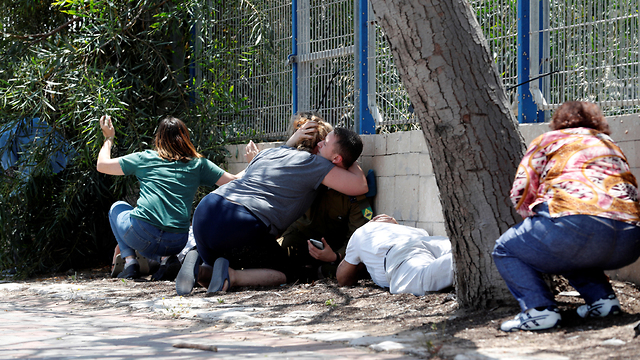
The NATAL data also shows that a quarter of the requests received by the helpline in 2018 were regarding care and assistance for children and young people in the south. The referrals were usually made by parents seeking support and assistance for children suffering from post-traumatic stress disorder.
According to the data, 27 percent of those seeking assistance did so following a war or military operation, 24 percent called over their military service, 13 percent due to security escalations, and 9 percent due to terrorism.
Ninety percent of the discharged combatants that receive help from NATAL are not recognized as post-trauma by the Ministry of Defense.










